3 days after election, 2 men declare themselves Honduran president amid rising tensions
International observers have urged calm and transparency as votes are counted.
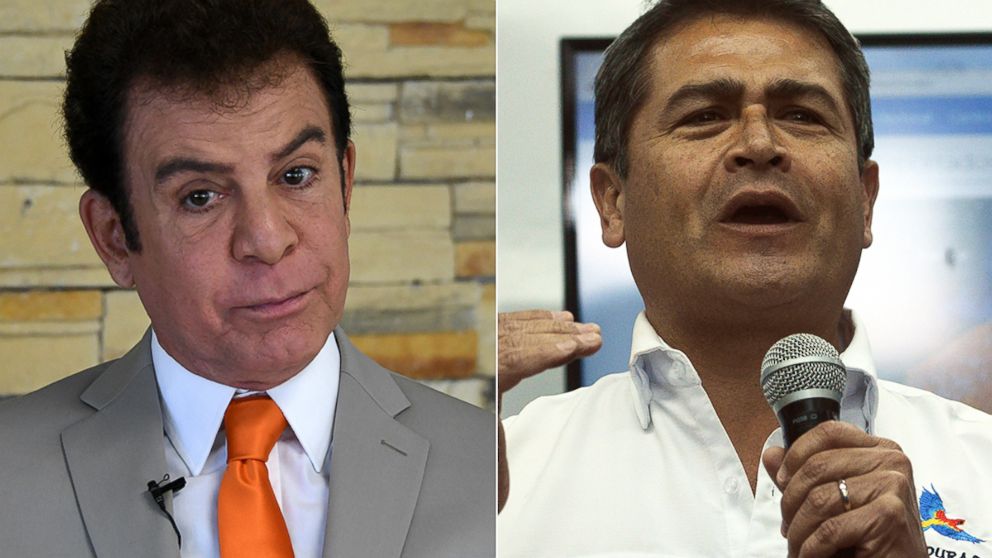
— -- Tension is rising in Honduras as the country still has no president-elect more than three days after voters went to the polls. Both major candidates have declared themselves the country's next leader.
International electoral observers have urged the country's vote-counting body to be more transparent with the results after it stopped updating the public on Monday. Allegations of fraud and vote-tampering by the opposition candidate, coupled with a delay in tabulating the votes, has raised alarms in a country where democracy is fragile.
Salvador Nasralla, the Opposition Alliance Against Dictatorship candidate challenging the current president, Juan Orlando Hernandez, told ABC News he was "worried" that his rival was trying to steal the election by manipulating the country's vote-counting body, the Supreme Electoral Tribunal.
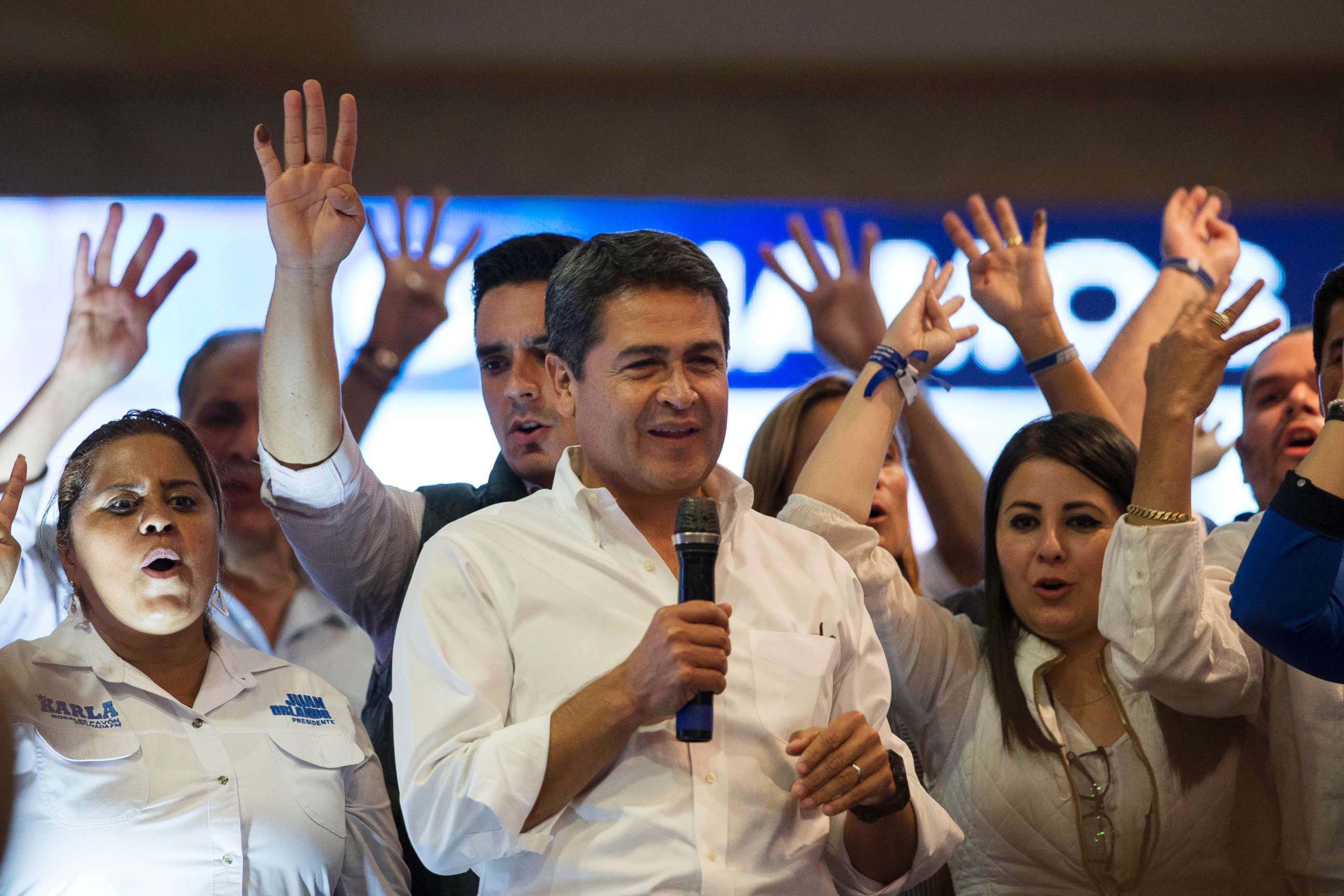
"I am worried, but the people are more worried. Because the people who voted for me are wanting to go out in the streets to protest," Nasralla said in Spanish. "In general, in Honduras, there has not been rule of law, the separation of powers doesn't exist. The executive branch, with Hernandez, controls the judicial branch, controls the public ministry and controls the electoral tribunal. All of these institutions are political institutions and as such, they obey Hernandez's instructions."
For his part, Hernandez, who represents the conservative National Party tweeted a "declaration for Honduran democracy" Wednesday night that he said he signed before electoral observers from the Organization of American States promising to accept the results.
"I call on all the militants and supporters of the National Party and the Honduran people, in general, to wait with calm and in peace while the vote from this past Nov. 26 is scrutinized," Hernandez wrote in Spanish.
At stake is the future of a country that has historically been a close a U.S. ally and struggled with one of the highest murder rates outside of a war zone in the world, as well as drug trafficking, gang violence, extreme poverty and human rights abuses. Hondurans have fled the country's drug and political-related violence in a mass exodus to the U.S. in recent years. President Trump is expected to decide the fate of 57,000 Hondurans currently living in the U.S. under the Temporary Protected Status program soon.
"The violence is due to the fact that this government, the government of the past eight years, has not generated employment opportunities for people," Nasralla said. "They have two possibilities: They dedicate themselves to violence or they go to the United States. Many have the dream of going to the United States, and that's why they go."
"I want to give people work here where they live, so they don't have to migrate," he added, saying that people have also flooded the two biggest cities looking for work.
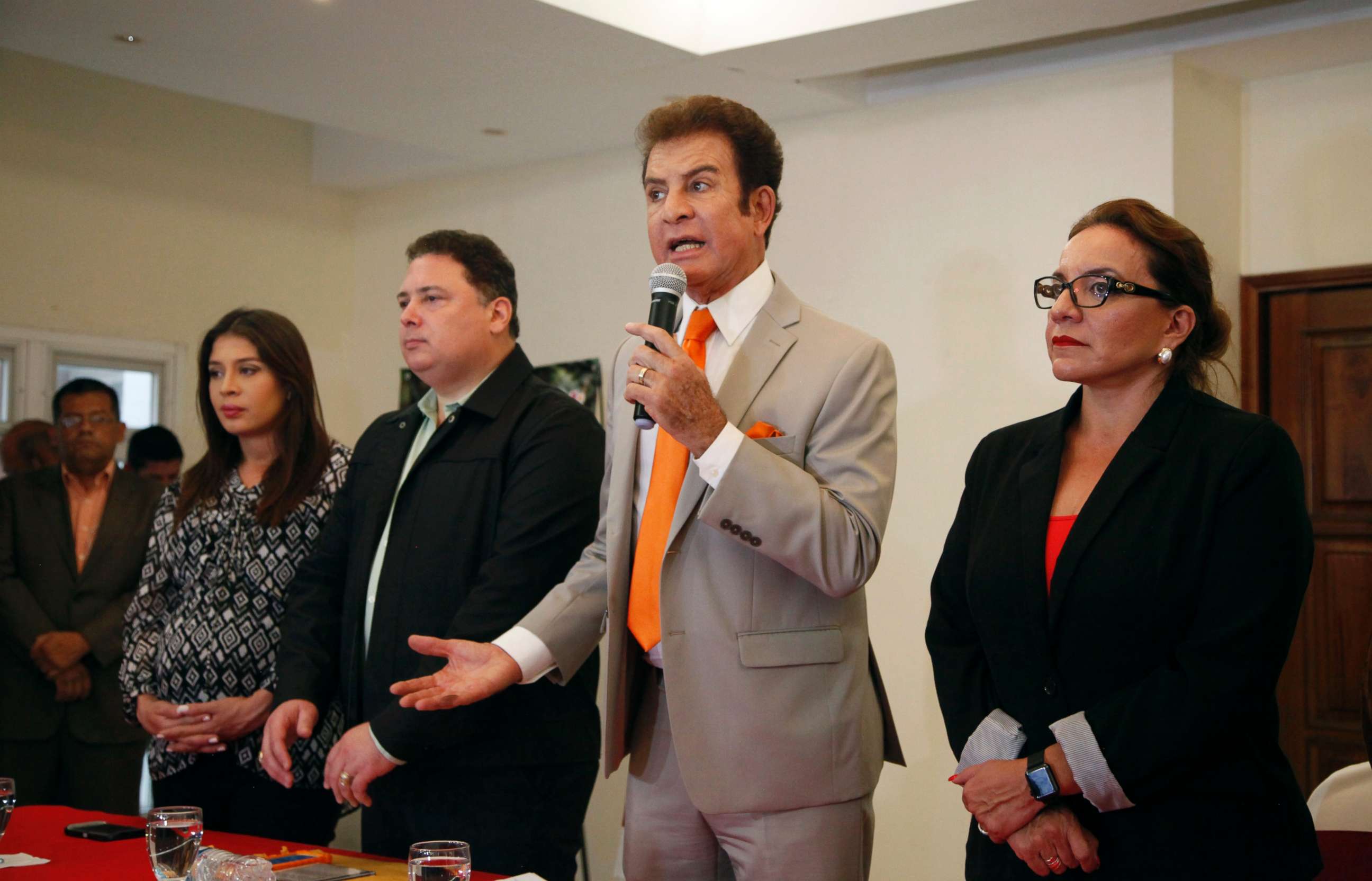
At the time of publication, results on the TSE's website showed Nasralla and Hernandez both hovering around 42 percent of the vote, with about 17 percent of results still being processed.
Earlier in the day, TSE President David Matamoros said the body does not modify results "in any way" and expected to finish counting Wednesday, the Associated Press reported.
"We have acted transparently," Matamoros added.
But early on, Nasralla, a 64-year-old businessman and former sports journalist, seemed poised to triumph over Hernandez in an upset victory. Authorities announced Monday morning that Nasralla was leading Hernandez by five percentage points.
Hernandez took to Twitter to say his campaign still had a chance, however, writing Monday night: "We continue to await the results that ratify the resounding triumph of the presidential elections. This isn't over until it's over!!!"
Then the vote-counting body stopped updating the public with the results, leading many voters -- and international observers -- to express concerns about transparency.
Observers from the European Union said in a preliminary report that while voting was generally peaceful, the tribunal had shared only one update since the polls had closed, compared to five updates after the 2013 race.
"It is urgent that the results be disclosed," Marisa Matias, head of the EU mission, said Tuesday. "The communication from authorities with their people must be more fluid."
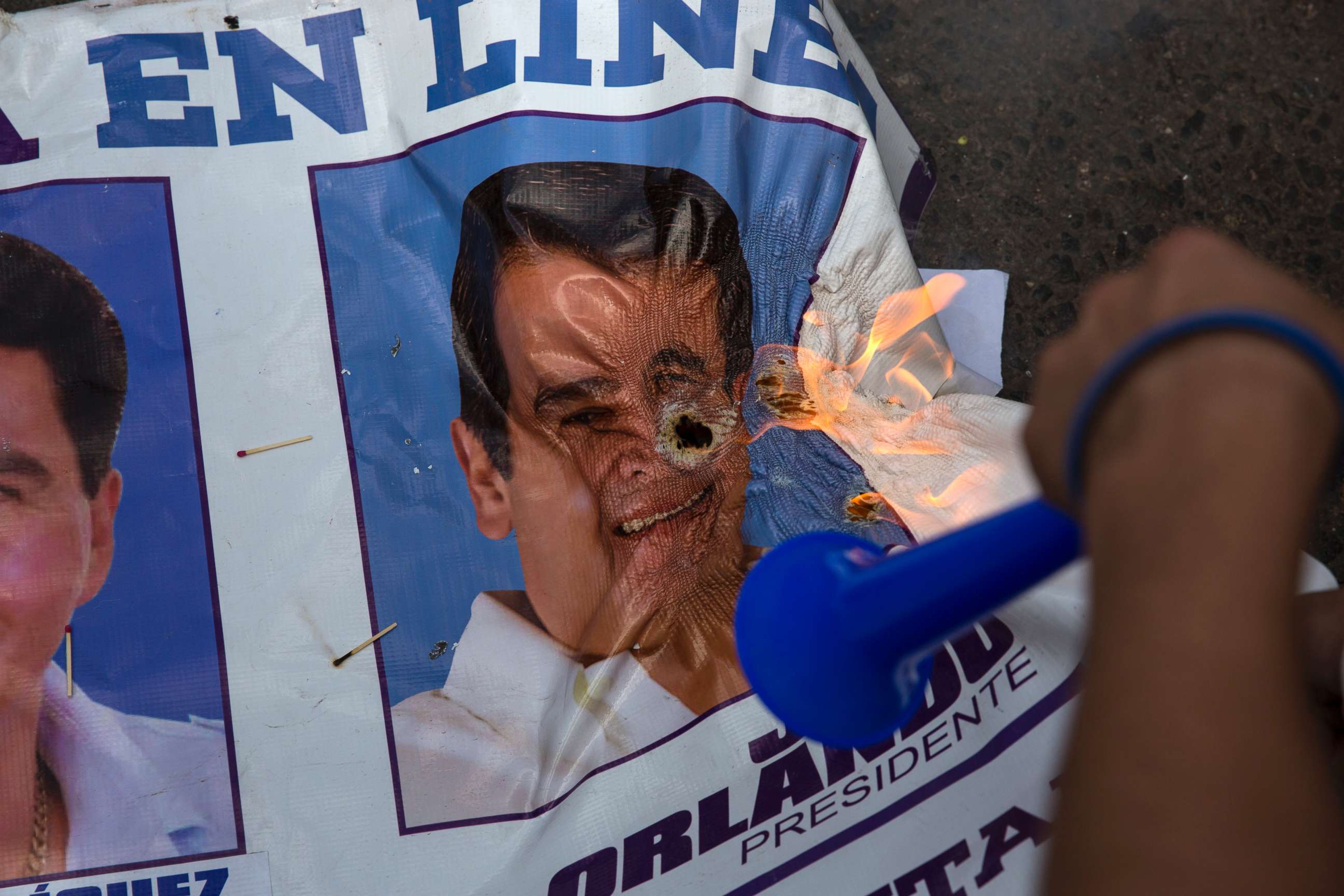
The OAS sent a team of 83 people representing 25 different nationalities to the country to observe the elections, it said in a statement. On Wednesday, that team also urged the electoral tribunal to "expedite the processing and dissemination of results."
"It is important that this stage be resolved with the utmost precision, celerity, transparency and legality in order to give certainty both to the citizenry and the political parties. The credibility of the electoral authorities and the legitimacy of the future president depend on this," the OAS said in a statement Wednesday.
Karen Spring, the in-country coordinator for the Honduras Solidarity Network, a group of 30 American and Canadian organizations, said the capital is "extremely tense" as voters await the final results, which could be announced tonight.
"It's now been three days since Hondurans went to the polls and still the Supreme Electoral Tribunal refuses to recognize the vote tally trends and declare a presidential winner," Spring told ABC News.
Spring said "confusion and tension" have come from the conflicting information voters have received from the Supreme Electoral Tribunal, social media and media organizations, as well as the president himself, who declared himself the winner Monday despite the fact that all votes have not been counted. Nasralla also declared victory.
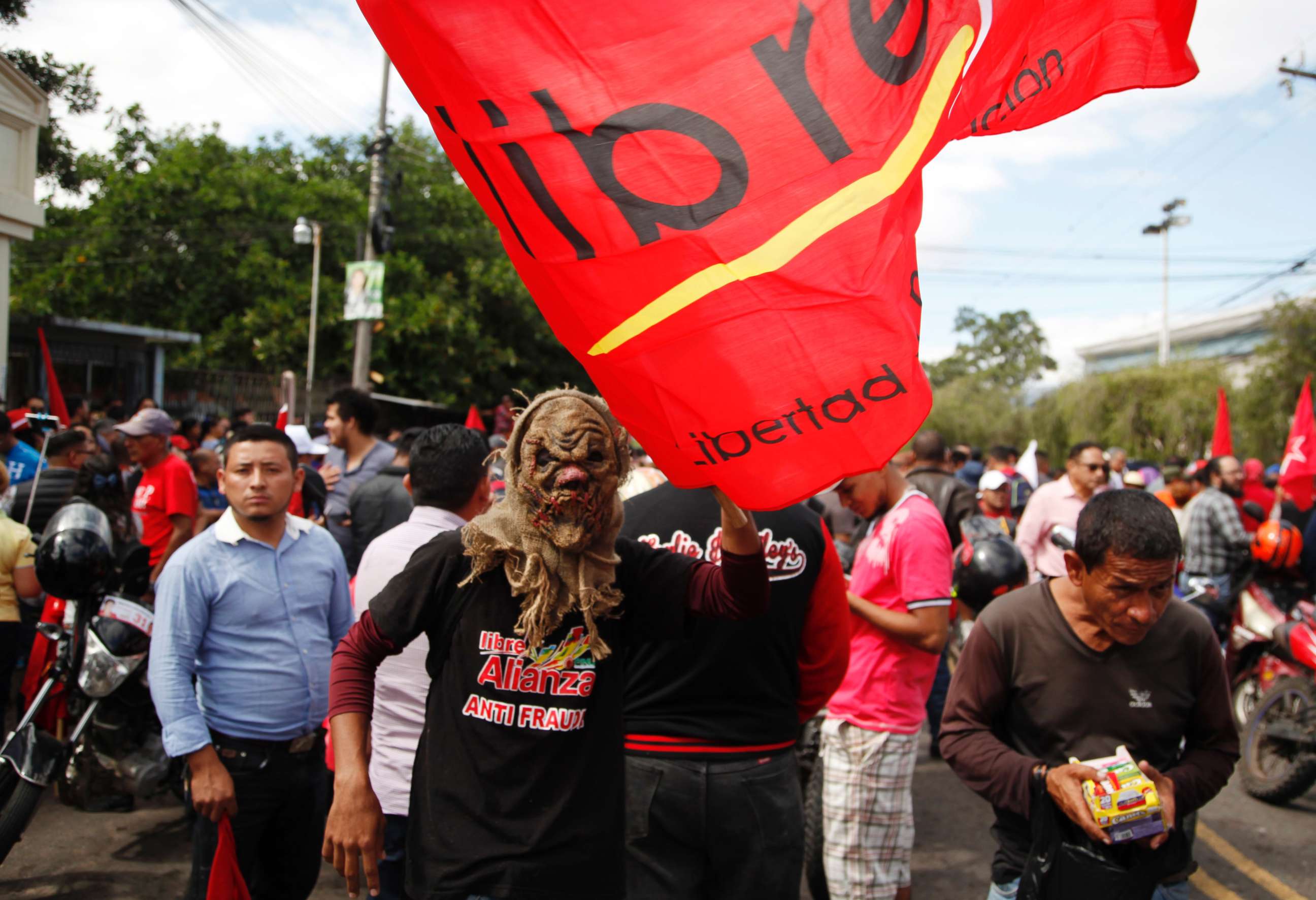
"These mixed messages are creating confusion, tensions, and deep suspicions and have the potential to generate violence in the streets as people demand the results," Spring said.
Spring said the Honduras Solidarity Network, along with advocacy groups La Voz de Los de Abajo and Codepink, organized human rights delegations to different parts of the country and observed issues on election day.
"On the day of the elections, we witnessed extreme militarization, vote buying, attempts to intimidate ourselves as international observers and voters, and violence," Spring said.
Hernandez, a U.S. ally who met with Vice President Mike Pence in June, ran for re-election after the constitution was changed to allow for it in 2015. The country's former president, Manuel Zelaya, was overthrown in a military coup in 2009 after he held a non-binding constitutional referendum, and the coup has had lasting effects, said Alexander Main, a senior policy analyst at the Center for Economic and Policy Research.
"The big winner following the 2009 coup in Honduras was the National Party, which has won all the major elections since then and has consolidated power to an extraordinary degree," Main told ABC News. "But a parallel phenomenon has occurred where a left-leaning movement opposed to the coup has, through the new LIBRE political party, become the second-most important political force in the country."
"Many in Honduras feel that the system, under National Party rule, is rigged to prevent LIBRE from coming to power, and the very troubling delays and contradictory messages from the TSE have reinforced this perception," Main added.
Nasralla, who is backed by LIBRE, has accused Hernandez and his party of influencing the vote-counting process.
"He doesn't want to accept it, so he's manipulating the electoral tribunal so that it declares him the winner," Nasralla said. "He has loyal people in the electoral tribunal who are tricking people and giving them numbers that don't correspond to reality."
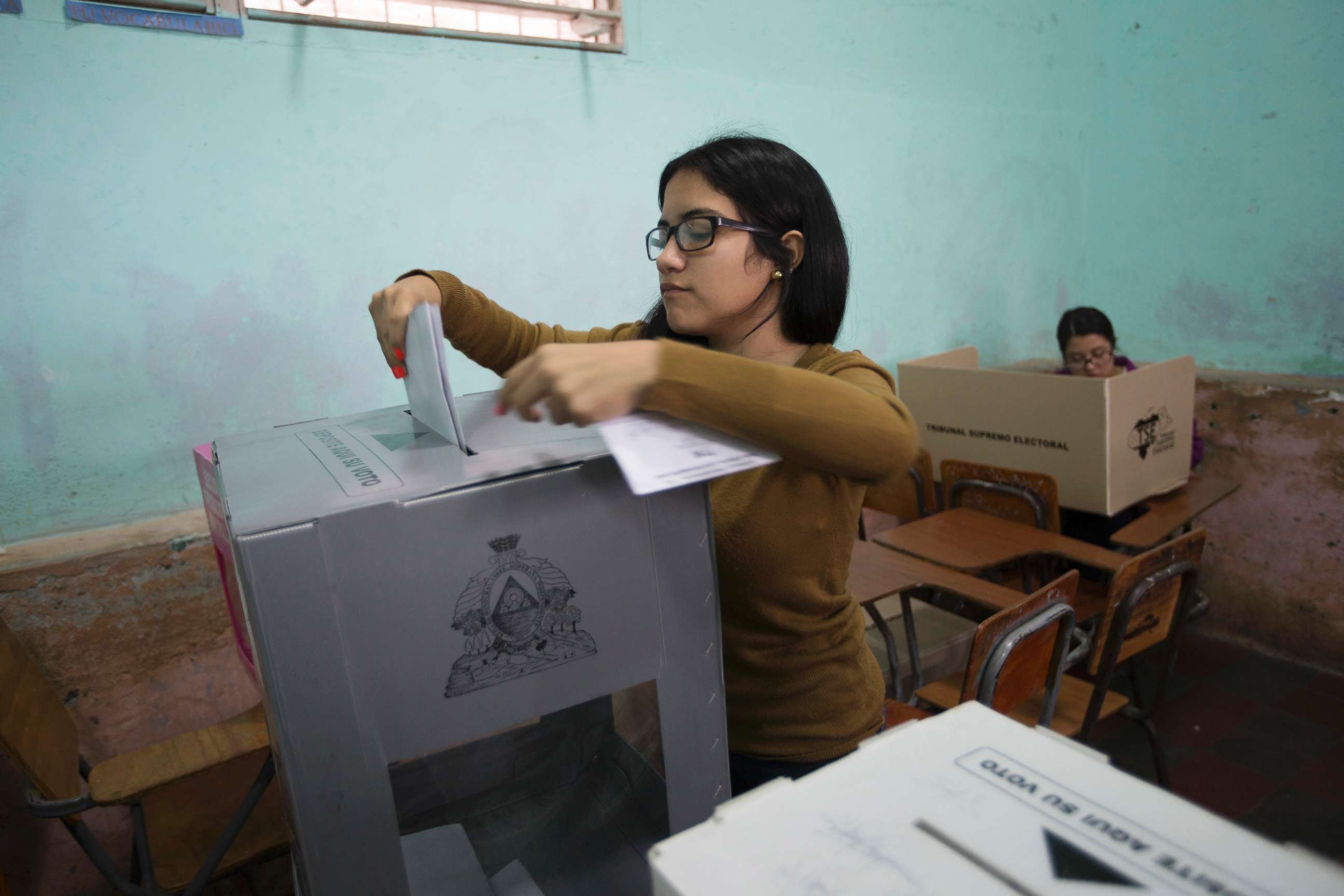
On Wednesday, State Department Spokesperson Heather Nauert said the U.S. "urges calm and patience as the results are tabulated."
"The United States looks forward to working with the democratically elected leaders of Honduras. We await the final tabulation of results by election authorities and urge the authorities to complete their work without undue delay," Nauert told reporters.
"It's critical that Honduran election authorities be able to work in a free and transparent manner without interference. We urge all candidates to respect the results once those results are announced," Nauert added.
Nasralla said that if the votes are not properly counted, "we are going to have to go out in the streets."
Main said the delay in counting votes has already generated that instability.
"The fact is, National Party incumbent Juan Orlando Hernández has already called on his supporters to take to the streets to 'defend' his victory, despite the fact that the official vote count has his opponent Salvador Nasralla in the lead," Main said. "This incendiary move has increased tensions enormously.
Meanwhile, should Nasralla not be declared winner, the legitimacy of that result will be understandably contested given the inexpiable delays and contradictory messages coming from the TSE during the vote count, and given the fact that the TSE announced that Nasralla had a strong lead at the beginning of the tallying process."
"Whether or not Nasralla calls on supporters to take to the streets, it seems inevitable that many outraged supporters will spontaneously fill the streets clamoring for a recount," he added.
The Honduran president's office did not immediately respond to ABC News' request for comment.




